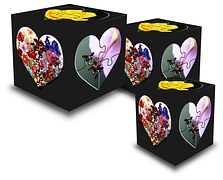I’ve been struggling with rewriting a journal manuscript which has been rejected 4 times, in varying iterations. The piece centers around my work with secondary literacy teacher candidates and the ways in which their perspectives and practices integrating literacy into their disciplinary lesson plans change over their time in my course.
My friend and colleague, Monica, who has read through drafts of this piece from the beginning and seen its transformation, today, suggested a shift in framing from one focused on notions of disciplinary and general literacy strategies to one focused on identity.
Identity.
Of course. Focus on identity. Because at the heart of all my work is identity.
Monica’s suggestion came at a particularly apt time, given that just yesterday, in class, we spent time sharing our literacy autobiographies with one another and responding in writing groups.
Literacy autobiography writing groups #edse457 pic.twitter.com/RyprwQYuQt
— Betina Hsieh (@ProfHsieh) September 7, 2016
The literacy autobiography writing groups are one of my favorite times in the semester. Teacher candidates share, in small groups, their literacy histories, in and outside of K-12 & post-secondary schools and connect their personal identities as readers and writers (or non-readers and non-writers) to their future professional identities as secondary teachers.
I am fortunate in that I get to read each one of their histories.
The literacy autobiography, as the first major assignment in this course, is an essential part of welcoming candidates’ identities into the classroom space. Some have had strong, cohesive experiences with literacy throughout their home, school, and professional lives; others have struggled with literacy at various points in their lives: learning English; transitioning from home to school environments that were vastly different, or negotiating shifting demands in secondary and post-secondary classroom contexts. Some identify as readers and writers with great certainty, whereas others qualify that they are a reader but not a writer, or a reader in certain contexts, or that they simply don’t consider reading and writing a salient part of their identities.
Wherever they are at the beginning of the course, the voice and openness found in these initial assignments helps me to know who students are. It inspires me to do my work.
Identity is the heart of my work.
So, it’s back to the drawing board with my manuscript that never seems to be quite there. But, like identity, it’s a work in progress, one that will eventually be bounded by the (authorial) choices I make, but a piece that belongs within a larger context of my life’s work.


